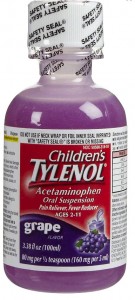Certain Foods can Make Your Spring Allergies Worse
 Spring brings flowers and grasses along with allergies to many people. However according to the Mayo Clinic Newsletter there is something that is called Pollen-Food Allergy Syndrome. For example, if you have HAY FEVER certain fresh fruits, nuts and various spices may trigger an allergic reaction that cuases the mouth to tingle or itch.
Spring brings flowers and grasses along with allergies to many people. However according to the Mayo Clinic Newsletter there is something that is called Pollen-Food Allergy Syndrome. For example, if you have HAY FEVER certain fresh fruits, nuts and various spices may trigger an allergic reaction that cuases the mouth to tingle or itch.In some people, pollen-food allergy syndrome — sometimes called oral allergy syndrome — can cause swelling of the throat or even anaphylaxis. This is an example of cross-reactivity. Proteins in fruits and vegetables cause the reaction because they’re similar to those allergy-causing proteins found in certain pollens. For example, if you’re allergic to ragweed, you may also react to melons; if you’re allergic to birch pollen, you may also react to apples. Cooking fruits and vegetables can help you avoid this reaction. Most cooked fruits and vegetables generally don’t cause cross-reactive oral allergy symptoms. You may only react during the time your allergy is active to these foods.
Below is a char of Common cross-reactivity between pollens and fruits and vegetables:
| If you are allergic to | Birch pollen | Ragweed pollen | Grasses | Mugwort pollen |
|---|---|---|---|---|
| You may also have a reaction to: | Apples Carrots Celery Hazelnuts Peaches Pears Raw potatoes |
Bananas Melons (cantaloupe, honeydew and watermelon) Tomatoes |
Tomatoes | Apples Carrots Celery Kiwi fruit Peanuts Some spices (caraway seeds, parsley, coriander, anise seeds, fennel seeds) |
Nutritional Products that have been helpful for Allergies:
See this previous post for nutritional help for allergies. I did not include Immunity Formual I. Some people do well with Shaklee Nutriferon and other like adding the Immunity Formula I.
Short Stories Allergies to view stories of people who have had success with nutritional supplementation for their allergies.

